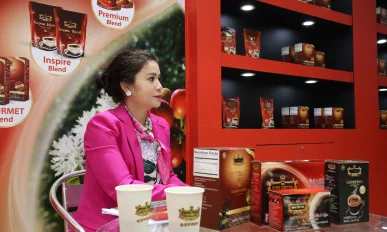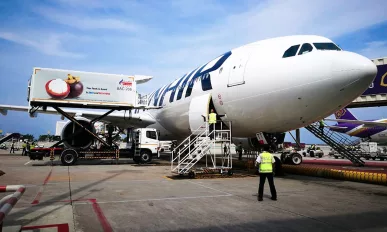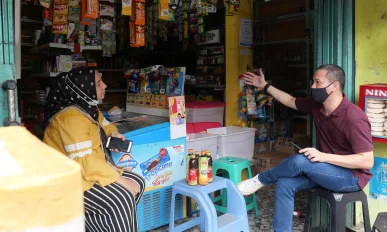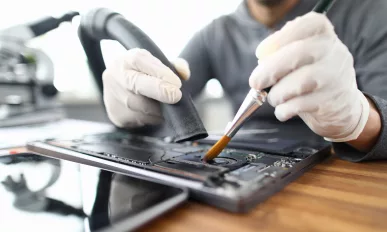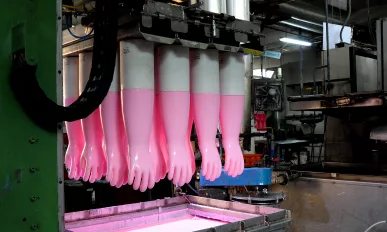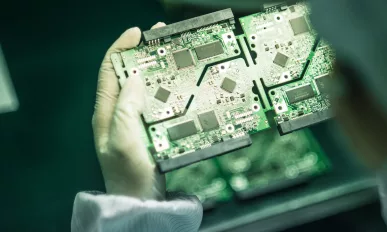Issue 48
TNI King Coffee : Building a Global Coffee Empire
The story behind the rise of TNI King Coffee, a Vietnamese coffee brand and café franchise with ambitious plans at home and abroad.
Cellcard : Digitising Cambodia
Ian Watson, CEO of Cellcard, discusses how his organisation is setting the standard for a digital revolution in Cambodia.
dpa lighting consultants : Light in Design
We spoke to Richard Bolt, Partner at dpa lighting consultants, about the company at the centre of the lighting design industry.
Bangkok Air Catering : Navigating Disruption
Khun Linus A.E. Knobel, Managing Director of Bangkok Air Catering, discusses the importance of an agile approach following COVID-19.
Blueleaf Energy : Harness the Sun, Transform the Future
Sol Proops, CEO at Blueleaf Energy, discusses the potential for exponential growth in Asia’s renewable sector and discusses sustainability.
Bombardier Australia (Alstom) : Moving Together
Bombardier develops sustainable rail transport across the globe, fuelling innovative new safety solutions in the face of COVID-19.
Bukalapak : Fairness Through Technology
The technology unicorn Bukalapak is motivated by a noble goal: to help grow the digital economy in Indonesia and make it fair for all.
DESIGNWILKES : Timeless and Elegant Design
Jeffrey Wilkes, founder of DESIGNWILKES, discusses his organisation’s drive to always put the customer at the forefront of decision-making.
Gold Fields Australia : Core and Community
Stuart Mathews talks to us about how Gold Fields Australia showcases the potential of employee, environment, and community-centric business.
Integrated Facility Solutions (IFS) : Facilitating Thailand
Bangkok based facility solutions firm Integrated Facility Solutions talks about expansion and adapting to customer demand.
Kramer Ausenco : Committed to Asia-Pacific
Adam Kramer, Director and Project Manager at Kramer Ausenco, discusses the organisation’s journey after more than four decades of success.
Moratelindo : Indonesia’s Critical Connector
Michael McPhail, CTO of Moratelindo, discusses the path to growth following a challenging year within Indonesia.
Nexans Olex : Responsible Manufacturing
With sustainability a core part of their strategy, the CEO of Nexans Olex, Greg Stack, discusses its place in the manufacturing industry.
OmniTech : Trade in Technology
Having built his business from the ground up, we spoke to Alex Chang, Managing Director of OmniTech, about growing technology.
Plus Solar Systems : Driving Sustainability in Malaysia
Ko Chuan Zhen, co-founder and CEO of Plus Solar Systems, discusses how the company became a major force in clean energy solutions.
Singapore Manufacturing Federation : Spotlight
The Singapore Manufacturing Federation, one of Singapore's largest organisations, represents interests of manufacturing-related industries.
Sri Lanka Association of Manufacturers and Exporters of Rubber Products (SLAMERP)
The Outlook Team take a deep dive into Sri Lanka’s longstanding rubber industry with SLAMERP and government-backed plans for expansion.
Stars Microelectronics : Innovation in Thailand
We talk to Stars Microelectronics about tackling new technologies, streamlining supply chain management and making a mark on Thailand.
UFS Dispensaries Ltd : Caring for Australia
A business that believes in giving back, UFS Dispensaries Ltd has been contributing to the Australian healthcare sector for 200 years.
CyberSecurity Malaysia : Securing Cyberspace
With cybercrime an ever-growing issue, we spoke to the CEO of CyberSecurity Malaysia to discover the latest in online protection.
Combatting COVID-19 in Asia
Axel Roesner and Marco Bovolini discuss their organisation’s response to COVID-19 and commitment to the continent of Asia.
LG : Mobile Innovation
The new design by LG blurs the lines between mobile and tablet, merging the two devices into one seamless body.
Supply Chain Decentralisation : Preventing World Trade Strangulation
China’s role as origin of many supply chains means that any major disruption within the country has a knock on effect on supply chains all over the world.



